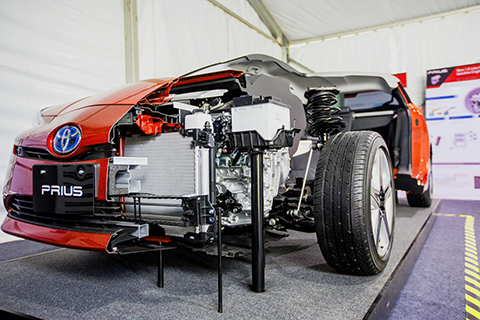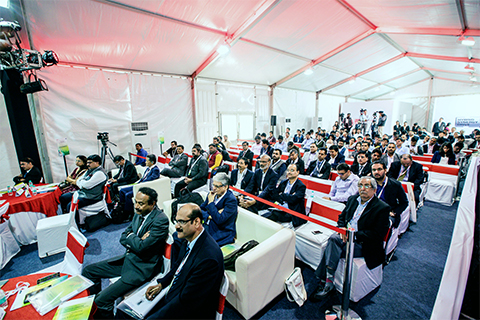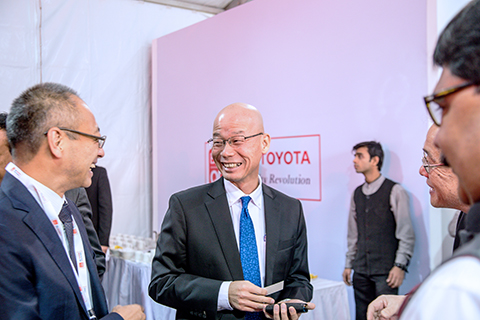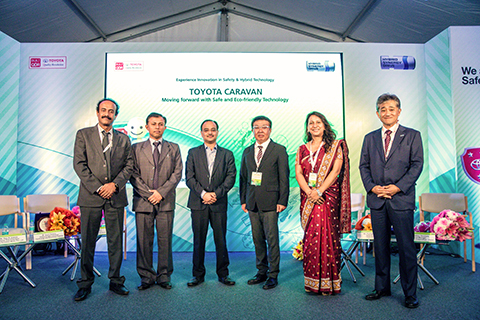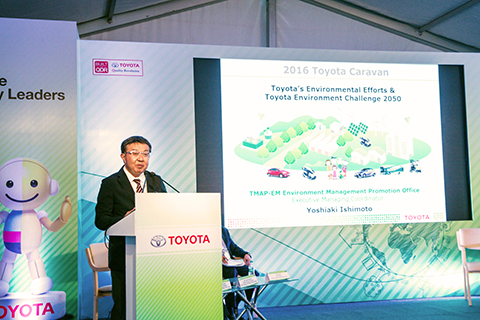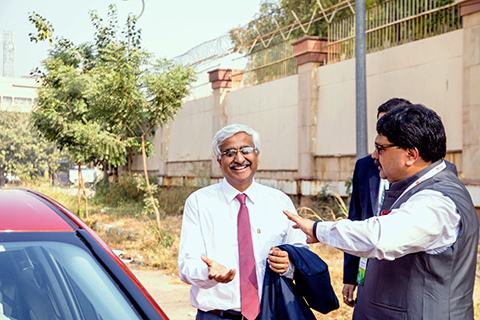Toyota Caravan Envisions an Environmentally-Friendly Future for India
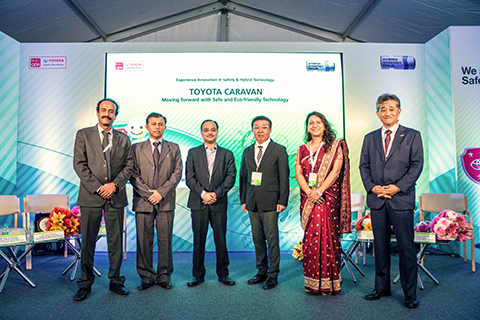

At the “Toyota Caravan”, a 4-day seminar that ran from 23rd – 26th November 2016 in India, government leaders, industry experts, and drivers alike were invited. The event saw Toyota Motor Corporation, Toyota Motor Asia Pacific and Toyota Kirloskar Motor (TKM) sharing the importance of implementing environmentally friendly technologies for the automotive industry in India.
A series of interactive sessions were held, where TKM shared Toyota’s global environmental initiatives, including its pioneering hybrid technology. Toyota Caravan also featured exciting exhibits and test drive sessions of its latest hybrid cars, an explanation of how eco-cars work, to compel the participants to think about how these vehicles can empower a positive change in India’s environment.
India’s Air Pollution Challenges: An Opportunity For Environmental Education
Like many fast growing countries, air pollution has become a critical concern in India. Local experts were invited to speak at Toyota Caravan, to provide a realistic perspective on the gravity of the issue of air pollution in India.
“With 182 million cars in India and 6.4 million cars in Delhi alone, cars that are not fuel-efficient and produce high amounts of harmful emissions can become extremely dangerous for everyone,” cautioned Mr. Sumit Sharma (Representative, The Energy & Resources Institute).
The exact sources of air pollution in India are multi-faceted. However, it is clear that all stakeholders must work together to tackle this urgent issue and take concrete actions. Toyota wants to play an active role in creating an ongoing dialogue and work with various stakeholders to put into action, sustainable environmental initiatives for India.
The Product: Hybrid Vehicles
The seminar also featured presentations by Toyota speakers. The first presentation was on Toyota’s hybrid technology, by Yoshihiro Onomura (General Manager, Hybrid Vehicle Engineering Management, Toyota Motor Corporation, Japan). He pointed out that “the challenges of motorized society in the 21st century could mean many vehicle in the world, thus the team adopted ‘outstanding fuel economy’ as a concept of a car and surpasses our original target of 1.5 times better fuel economy.”
The world’s first mass-produced hybrid vehicle, the Toyota Prius, was born in 1997, out of Toyota’s conviction for a greener future. Over the years, Toyota has continually optimized the performance of its eco-cars for better fuel efficiency and a smaller carbon footprint. Toyota remains committed to advocating widespread use of eco-cars, and to raising awareness of the environmental and economical benefits of its hybrid vehicles.
Toyota Environmental Challenge 2050
Yoshiaki Ishimoto (Vice President, Environment Management Promotion, Toyota Daihatsu Engineering and Manufacturing, Thailand) shared Toyota’s global commitment, Toyota Environmental Challenge 2050. Saving the environment is not just a concern in India; environmental conservation has become an issue of global importance. Toyota Environmental Challenge 2050 represents Toyota’s commitment to reduce carbon emissions through its whole value chain from design, production, and to the life cycle of the car. Toyota also aims to deliver net positive impact through the optimised use of water, recycling, and preserving green spaces.
Ishimoto explained the six challenges of our global commitment, as well as initiatives like “Toyota Green Wave Project”, “Today for Tomorrow” and “Toyota Education for Sustainable Development Project”, which are being rolled out worldwide.
Toyota’s Environmental Initiatives in India
Aligned with the Toyota Environmental Challenge 2050, Toyota affiliates all over the world have laid out local initiatives to address environmental concerns.
In its production plant in India, Toyota optimises water usage with advanced wastewater treatment, and returns higher water quality to local areas.
Carbon emissions during the car manufacturing process are greatly reduced with the use of environmentally friendly paint. The introduction of servo-driven mechanical presses, used for forming metals, also allow for energy to be focused and maximised.
The Programmes: TKM’s Commitment to a Greener Future
Ketkale also spoke about the programmes that have been introduced to raise environmental awareness among local communities, as part of Toyota Environmental Challenge 2050’s “Harmony with Nature” commitment. One such initiative in India is Ecozone, an outdoor environmental education centre and forest cluster within TKM’s campus. Another initiative we have introduced is the “Green-Me” programme, which involves “eco-nurturing” young minds. These are just some of the programmes TKM is working on, to motivate the people of India to learn, innovate, and help restore our environment.

